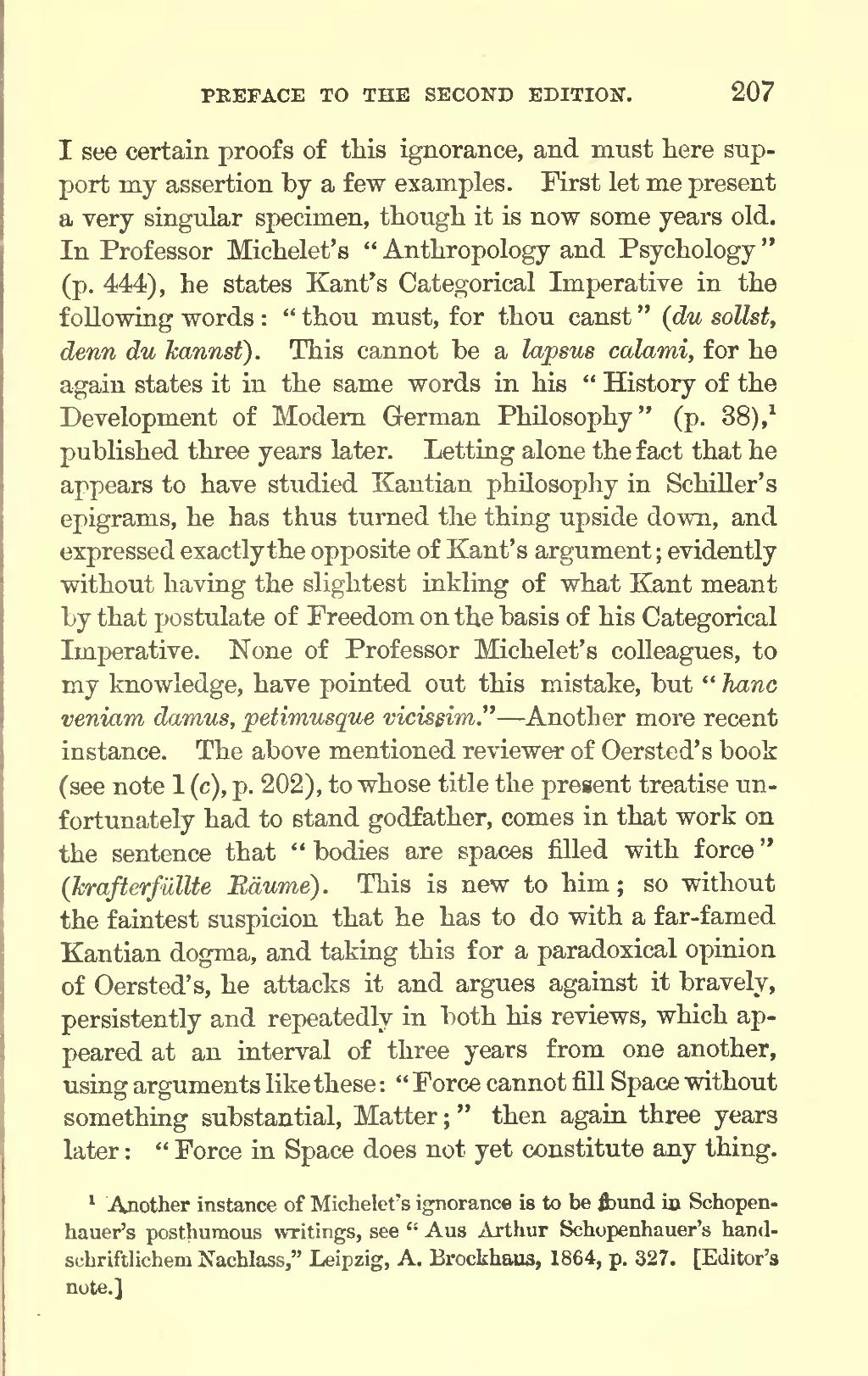I see certain proofs of this ignorance, and must here support my assertion by a few examples. First let me present a very singular specimen, though it is now some years old. In Professor Michelet's "Anthropology and Psychology" (p. 444), he states Kant's Categorical Imperative in the following words: "thou must, for thou canst" (du sollst, denn du kannst). This cannot be a lapsus calami, for he again states it in the same words in his "History of the Development of Modern German Philosophy" (p. 38),[1] published three years later. Letting alone the fact that he appears to have studied Kantian philosophy in Schiller's epigrams, he has thus turned the thing upside down, and expressed exactly the opposite of Kant's argument; evidently without having the slightest inkling of what Kant meant by that postulate of Freedom on the basis of his Categorical Imperative. None of Professor Michelet's colleagues, to my knowledge, have pointed out this mistake, but "hanc veniam damus, petimusque vicissim."[2] Another more recent instance. The above mentioned reviewer of Oersted's book (see note 1 (c), p. 202), to whose title the present treatise unfortunately had to stand godfather, comes in that work on the sentence that "bodies are spaces filled with force" (krafterfüllte Räume). This is new to him; so without the faintest suspicion that he has to do with a far-famed Kantian dogma, and taking this for a paradoxical opinion of Oersted's, he attacks it and argues against it bravely, persistently and repeatedly in both his reviews, which appeared at an interval of three years from one another, using arguments like these: "Force cannot fill Space without something substantial, Matter;" then again three years later: "Force in Space does not yet constitute any thing.
- ↑ Another instance of Michelet's ignorance is to be found in Schopenhauer's posthumous writings, see Aus Arthur Schopenhauers handschriftlichen Nachlass [Wikisource annotation: From Arthur Schopenhauer's Manuscript Remains], Leipzig, A. Brockhaus, 1864, p. 327. [Editor's note.]
- ↑ Wikisource translation: We beg this freedom for ourselves and likewise grant it to others.
